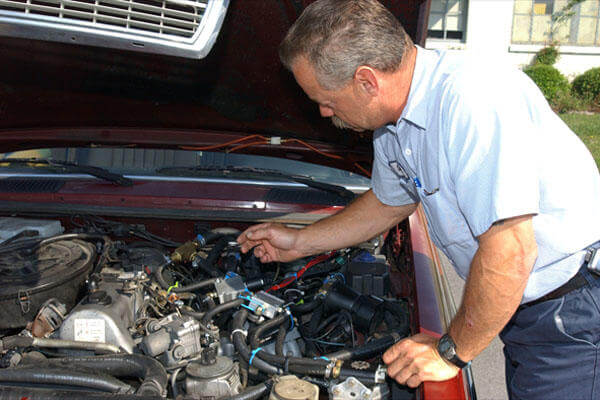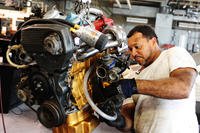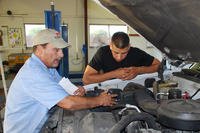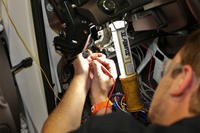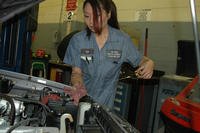Unlike older vehicles, which needed ignition tune-ups at least once a year, most vehicles on the road today have electronic ignition systems that are built to go for years without the need for them. The term "tune-up" is still used to refer to routine maintenance, which varies with a vehicle's make, model,and year, so check your owner's manual for scheduling recommendations.
Because major tune-ups require electronic diagnostic equipment and sensitive onboard computers, they should be done by professionals at the dealership or a qualified service facility. And remember, if you fail to get a scheduled tune-up you could violate your vehicle's warranty or leasing agreement.
In case you're wondering what a modern tune-up includes, it generally involves doing an electronic diagnostic check, changing spark plugs, replacing air and fuel filters, and checking fluid levels. Other parts may not need to be replaced for the life of the car.
There are several jobs involving the electrical system that you can deal with yourself. The first involves checking, reading, and reinstalling or replacing spark plugs if your vehicle's performance suddenly drops and if your vehicle is configured so that you can work on the spark plugs without harming your engine. You also can troubleshoot and replace fuses and replace and adjust the headlights.
Caution: Before you get down to work on your electrical system, please be aware that there are devices that you shouldn't attempt to deal with yourself unless you've worked on them before. If you have trouble with your defroster, heater, anti-theft devices, or stereo system, get professional help. Later, if you turn into a confirmed do-it-yourselfer, you can find books that deal with these repairs.
Don't attempt to work on your air conditioner under any circumstances. It contains refrigerant under pressure that can blind you if it escapes. For service or repairs, head to the dealership or to an automotive air-conditioning specialist. Now, let's get on to what you can do!
Determining Whether Your VehicleNeeds a Tune-up
Tune-up intervals vary from one vehicle to another. Most older vehicles with non-electronic ignitions should be tuned every 10,000 to 12,000 miles or every year, whichever comes first. Newer cars with electronic ignition and fuel injection systems are scheduled to go from 25,000 miles to as many as 100,000 miles without needing a major tune-up.
Refer to your owner's manual for recommended tune-up intervals, but be aware that even if it says that the vehicle doesn't require scheduled tune-ups very often, it's in your best interest to check periodically that your vehicle's working at peak efficiency. If you do a lot of stop-and-go driving or pull heavy loads (like a camper or boat), your ignition system may need to be tuned more often. Here are a couple of symptoms that tell you that your electronic ignition system may need to be tuned or adjusted:
-
The car stalls a lot. The spark plugs may be fouled or worn, the gap between the spark plug electrodes may need adjusting, or an electronic sensing device may need to be adjusted. Stalling also can be caused by problems with the fuel system.
If you're having trouble pinpointing why your vehicle is stalling, you can help your automotive technician diagnose the problem by paying attention to whether the engine stalls when it's hot, cold, or when the air conditioner is on.
- The engine is running roughly when idling or when you accelerate. Chances are the vehicle needs a tune-up.
- The car gets harder to start. The problem can be in the starting system (for example, a weak battery), in the fuel system (for example, a weak fuel pump), in the ignition system, or can be due to an electronic component, such as the electronic control unit (ECU).
From Auto Repair for Dummies, copyright © 2009 by Wiley Publishing, Inc., Indianapolis, Indiana. Used by arrangement with John Wiley & Sons, Inc.
